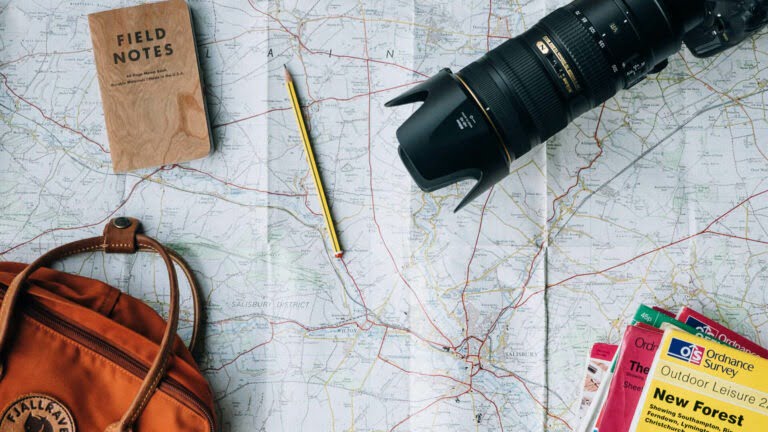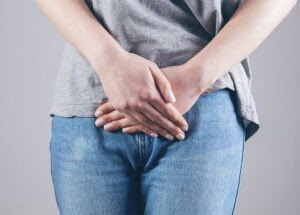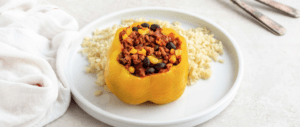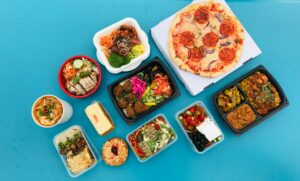While traveling can be one of the most rewarding, fun, and exciting escapes from everyday reality, for those with chronic gut symptoms it can also ignite intense fear and anxiety. Particularly with covid growing more manageable, upcoming travel is on the agenda for many.
Some common concerns that flood in from clients include the following:
Will I be able to wear the clothes I packed or will bloating take over?
How do I stay on track with my eating and supplements?
How do I balance nourishment and pleasure with food while traveling? ?
To address these issues head-on, here are some strategies we recommend to ease travel fears, live in the moment, and take care of your health even while on the road.
#1: Keep the supplements on-hand and organized
A vacation for your mind does not have to equate to a vacation from caring for your body. If you take supplements and vitamins that are aiding your current healing journey, or you are on a consistent maintenance dose, trips are a time to continue these steps. As many learn in the gutTogether program, consistency is the foundational approach to minimizing symptoms over the long-term. For sustainable change, the strategies must work not just in a vacuum at home, but when our dynamic life moves and changes; a prime example of this is of course while traveling.
- First and foremost, write down your supplement schedule BEFORE leaving town. You do not want to take precious time away on the trip, and it will be seen as a chore rather than a positive proactive step in your health.
- Next, calculate any time difference and how that will impact when you take your supplements. Writing it down can help serve as a steadfast reminder so that you don’t forget even while on the go. If it helps, you can also set alarms in your phone to remind you to take supplements.
- Bring a pill box that separates the supplements by day and time to support organization and overall less thinking – after all, you are on vacation! The less work and brain power required, the better it is!
- Pack some smaller baggies along with you so that you can put supplements inside them, and bring it out to meals if needed. You can discreetly fit these small bags, for example a plastic ziploc, into a purse so that no attention is drawn to you and it’s easy to carry. Or, use this supplement case that can be separated by day and time
#2: Incorporate Mindfulness Strategies
It is a vicious cycle: bloat can lead to anxiety and anxiety can lead to bloat. This circular struggle can be minimized with foundational mindfulness approaches that tackle the anxiety head-on. While some trips require a vacation afterward for proper recovery (we all know the ones I’m talking about), taking moments to yourself can work wonders in not just de-escalating physical symptoms, but in supporting the all-too-essential mental health component as well.
- If it is a safe environment to walk alone, take some time to breathe the fresh air and disconnect. Even if it is just a five minute stroll, this may be the recharge you need to ease the anxiety, and in turn provide some relief for any oncoming gut symptoms.
- Initiate deep breathing and moments of pause BEFORE symptoms arise. This helps encourage your body to remain in a restful mode that can support easier digestion.
- Chew your food to applesauce consistency. Trips often consist of new meals, tastes, and smells. Remind yourself that no one is taking the plate away from you, so live in the moment and absorb every sensation it is bringing to you. Slowing down allows for you to truly enjoy the food, the company, and to bask in all the atmosphere has to offer.
- Practice gratitude each morning in a way that works best for you. This may include writing it down in a journal, saying it aloud in prayer, thinking about it in the morning shower, jotting notes in your phone during a peaceful walk. Whichever method suits you and your lifestyle is the one to also bring on your trip!
#3: Prioritize sleep, sleep….and sleep!
Trips offer such a thrilling element of novelty and excitement that it can be challenging to turn-off and get the proper shut-eye. The expression “FOMO” (fear of missing out) is very real, and can unfortunately lead to both late nights and early mornings. This is important to note because poor sleep can exacerbate negative gut symptoms. On the other hand, restful sleep can do the exact opposite and minimize symptoms. Our recommendation is to plan in a way that proactively incorporates sleep into the trip’s schedule. If it is going to be an early morning of touring, or any type of plans for that matter, make it a priority the evening beforehand to get in bed on the earlier side. Bring an enticing easy read to encourage deeper relaxation before your head even hits the pillow. If you have access to a bathtub, take a relaxing epsom salt bath, or spend some extra time in a calming warm shower to get into a restful mode. Even while traveling, your nightly ritual does not have to de-rail. For example, if you are accustomed to a warm cup of chamomile tea each night, make it a priority to pack your tea bags and create that same ambiance on the road. If tea is not accessible, a cup of hot water in a cozy mug can still mimic that relaxing habit to signal your body it is time for sleep.
#4: Stay true to yourself and your triggers, but don’t beat yourself up
We all have individuals in our lives who don’t understand our symptoms , and oftentimes this arises during group trips. While everyone collectively is trying to “live in the moment”, remember that how you elect to experience this moment is your choice! Similar to the previous blog (link the blog) post in understanding people’s judgment of you may actually be how they are perceiving themselves, we suggest you visualize this sentiment for personal strength. Understand that saying “yes” or “no” to something comes from a place of confidence and security. Saying no to something that does not make you feel well today is not a place of weakness or a point of embarrassment, it is a proactive and empowering step in your health that you are choosing. Each time this happens, you are telling the nervous system that you are picking your health first, and the optimal reward is having a body that feels safe with more predictable symptoms. If on the trip you end up missing a supplement, eating foods that historically make you feel sick, and perhaps even take a break from your mindful journaling, that is okay too and absolutely NOT something to repeatedly harp on internally. Permission to take a step back is a form of healing too, and sometimes that time away makes you appreciate routine and consistency once you are fully back to reality following your travels.
#5: Last, but surely not least, have your symptom toolkit ready
When symptoms do arise on vacation, because unfortunately the change in routine can sometimes instigate symptoms, the trick is not to panic! This is easier to do when you have the proper education and tools ready to handle any gut setbacks:
- Peppermint oil to rub on your stomach when experiencing severe gas pains can help alleviate the uncomfortable pressure. Peppermint tea as well can also do the trick, and will simultaneously serve as a vehicle to rehydrate without solely relying on water.
- Heating pads are never a bad thing to pack if you have the room, they should fold up nicely in your suitcase, making space for all of the essentials like cute clothes and shoes. This can also be used at night for a calming effect or if bloating and gas pains arise.
- The ILU massage: is a tried and true way to push along stool and gas that may be trapped.
- HYDRATION! This one will always come up. Pack a cute water bottle that you can consistently refill so that you do not forget. This will help keep you regular, especially since flying on an airplane can be incredibly dehydrating and your colon needs the water to draw out stool comfortably and completely.
- Ginger capsules or ginger tea between meals will aid keeping everything moving if you’re feeling backed up by supporting the migrating motor complex (MMC) to sweep the intestines clean.
- Magnesium citrate helps draw water into the colon to make stools easier to pass. If you are on this supplement before the trip, be sure to continue it while traveling in particular.
- Pay attention to the fiber you are eating. If possible, try to sneak some extra greens at meals. Furthermore, aim for eating balanced (protein, fat, fiber, complex carbs/color) when possible, rather than “saving up” for a big dinner which can exacerbate bloating discomfort and quick fullness. If needed, traveling with some fiber to quickly add to water can help in a pinch!
The final recommendation is to ENJOY THE TRIP! Time is precious. If you mess up, keep marching forward. Healing is not linear, and trips are also a part of the journey. As challenging as it may be, let go of all you cannot control. Practicing being present brings great joy, and can propel you forward as you learn how to work with your gut in all situations.
This article was written by gutTogether Health Coach Samantha Kane
This article does contain affiliate links. Thank you for your support.









